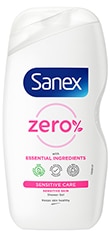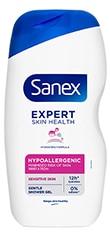Which foods cause eczema?
There is some debate over whether or not certain foods can trigger an eczema flare-up in adults or older children. The evidence is unclear, but many people do report that they start to experience symptoms after eating certain foods. According to one survey, common trigger foods included:
Some people have a condition called coeliac disease, which means they have a strong immune reaction to gluten in the gut. Research suggests that there could be a genetic link between coeliac disease and atopic eczema, as it’s common for people to be affected by both conditions at once. In this case, removing gluten from the diet seems to help the symptoms of eczema, too.
If you do notice eczema flare-ups after eating certain foods, it’s also important to consider the following possibilities:
It could be a coincidence. You’re exposed to lots of potential triggers throughout the day, so it could be something else that’s triggering your flare-up.
Eczema flare-ups can take days to appear after exposure to a trigger. So while it might make sense to attribute your flare-up to a food that came directly before it, the real trigger may be long gone by the time you feel its effects.
It’s common for people with atopic dermatitis to also have other allergies, including food allergies, according to the Allergy Foundation South Africa. Allergic reactions to food can cause skin symptoms that might be similar to an eczema flare-up, like rashes or hives.
It may help to keep a food diary where you note down what you eat, when you eat, and if/when any symptoms appear. That way, you may be able to draw some stronger connections between your diet and your flare-ups. But if you do suspect that you’re having a reaction of any kind to something in your diet, it’s a good idea to speak to your doctor so they can test you for allergies or intolerances.
Which foods can help with eczema?
In addition to cutting out or limiting potential trigger foods, it may help to add more of certain foods into your diet. There is no official “diet” for managing eczema, but since it is an inflammatory disease, recommendations tend to focus on foods with anti-inflammatory nutrients like:
Antioxidants. These molecules help with inflammation by fighting damaging “free radicals” in the body. Fruits and vegetables, especially strongly coloured ones like berries and carrots, are especially rich sources of antioxidants. Nuts and seeds like almonds, hazelnuts and sunflower seeds are also full of the skin-loving antioxidant, vitamin E.
Fatty acids. It may also help to add more healthy omega-3 fatty acids, as found in nuts, olive oil and oily fish. Not only do these fatty acids have an anti-inflammatory effect in the body, but they’re also essential for healthy skin barrier function.
In the survey mentioned earlier, people reported that they had the best improvement in eczema symptoms when they ate these foods, especially when choosing organic options. That may be because organic foods are free from chemicals like pesticides, which could trigger inflammation and eczema symptoms.
Gut health and eczema
Although experts are only just beginning to scratch the surface, they believe that there is a connection between gut health and immune-related conditions like atopic eczema. So far, researchers have found that people with this condition are more likely to have low diversity in their gut microbiome. Plainly speaking, this means that there are not as many different types of friendly bacteria in the gut as they’d expect to find in people without eczema. And in theory, that could be causing problems for the immune system and the skin.
One way to address this may be to add more probiotic foods and drinks to your diet. These contain lots of live, gut-friendly bacteria, so consuming them helps to boost the numbers in your digestive system. Good sources of probiotic bacteria include:
Yoghurt
Kefir
Kombucha
Sauerkraut
Kimchi
Pickles
Miso
Tempeh
If you want to go the extra mile for your gut health, you can also include lots of prebiotic fibre. This fibre feeds the gut bacteria, making sure you can reap the many health benefits of a healthy, diverse gut. You can find it in foods like:
Jerusalem artichokes
Onions
Garlic
Leeks
Legumes
Whole grains
There’s no hard evidence of a link between eczema flare-ups and diet. However, lots of people report that their symptoms improve with certain foods, as well as a diligent skincare routine based on hypoallergenic products like Sanex Hypoallergenic Shower Gel for Eczema Prone Skin. You know your body best, so as long as your diet is balanced, nutritious and enjoyable, there’s no harm in avoiding certain foods if you feel they might be making your eczema symptoms worse. And you might even find some new favourites in this list of eczema-friendly foods! If you suspect an allergy or intolerance, though, or you feel your diet is becoming overly restrictive, then see your doctor for advice.
















